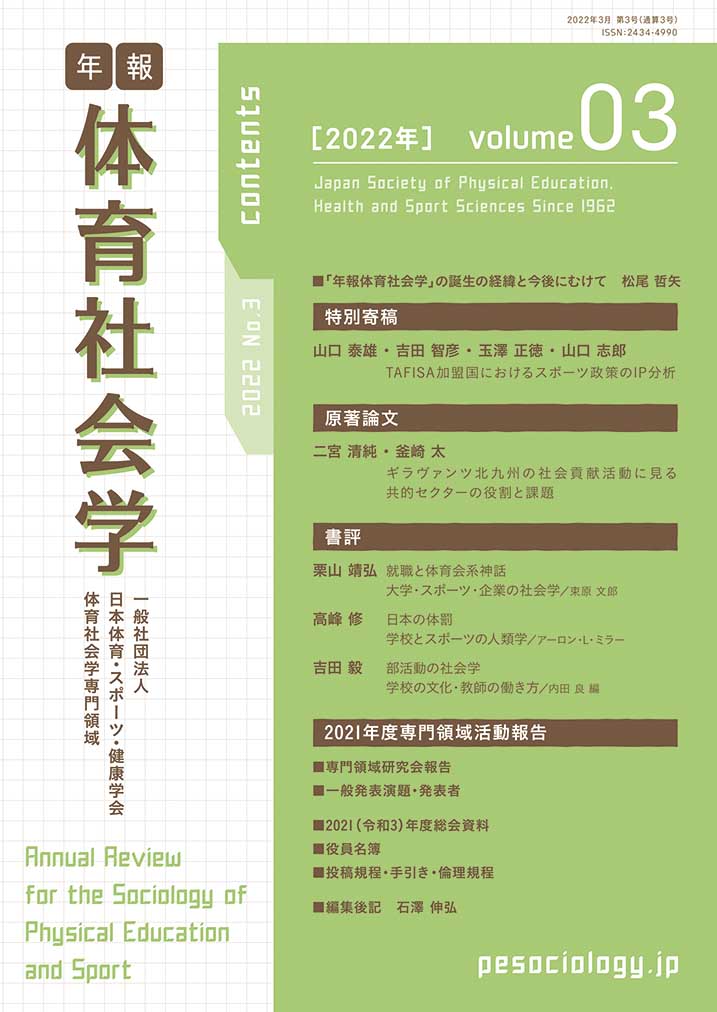3 巻
選択された号の論文の7件中1~7を表示しています
- |<
- <
- 1
- >
- >|
巻頭言
-
2022 年 3 巻 p. 0
発行日: 2022年
公開日: 2022/06/07
PDF形式でダウンロード (132K)
特別寄稿
-
2022 年 3 巻 p. 1-13
発行日: 2022年
公開日: 2022/06/07
[早期公開] 公開日: 2022/04/01PDF形式でダウンロード (769K)
原著論文
-
2022 年 3 巻 p. 15-26
発行日: 2022年
公開日: 2022/06/07
[早期公開] 公開日: 2022/02/14PDF形式でダウンロード (511K)
書評
-
2022 年 3 巻 p. 27-28
発行日: 2022年
公開日: 2022/06/07
[早期公開] 公開日: 2022/03/22PDF形式でダウンロード (263K) -
2022 年 3 巻 p. 29-30
発行日: 2022年
公開日: 2022/06/07
[早期公開] 公開日: 2022/03/22PDF形式でダウンロード (281K) -
2022 年 3 巻 p. 31-33
発行日: 2022年
公開日: 2022/06/07
[早期公開] 公開日: 2022/03/22PDF形式でダウンロード (303K)
2021年度日本体育学会体育社会学専門領域研究会
-
2022 年 3 巻 p. 35-77
発行日: 2022年
公開日: 2022/06/07
[早期公開] 公開日: 2022/05/16PDF形式でダウンロード (5808K)
- |<
- <
- 1
- >
- >|
